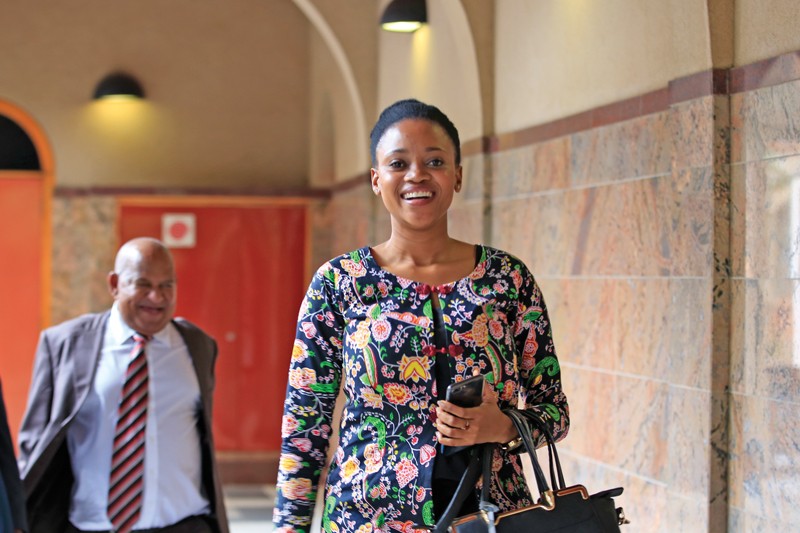'Double-Edged Sword In Sexual Consent Bill'
Goitsemodimo Kaelo | Monday April 9, 2018 17:10


The move by Parliament to pass the motion to raise the age of sexual consent to 18 years into law could be a double-edged sword when left as it is, SAT warned. Kenewendo, now the substantive Minister of Investment, Trade and Industry, tabled the motion last year, seeking amendment to the Penal Code.
However, SAT, an organisation that works with communities and civil society organisations to mobilise and strengthen their capacity to respond to the HIV pandemic, and improve sexual and reproductive health and rights in East and Southern African countries including Botswana, has come out to say that the proposed law has an unintended effect of turning children into criminals.
In a presentation prepared for Members of Parliament and signed by the Country programme director, Thatayaone Gabositwe, SAT says if the law is passed, adolescents between the ages of 16 and 18 who are already engaged in consensual sexual activity, some amongst themselves and others with elderly partners, could be prosecuted and convicted for engaging in what they have previously been lawfully doing.
“From the outset, we appreciate the spirit of the amendments, in particular regarding the increase of the age of sexual consent from 16 to 18 years. It is done in good faith. But whereas the proposed law seeks to protect adolescents from sexual abuse, the unintended effect of the law is that it would turn children into criminals,” Gabositwe wrote.
SAT stated that if the age of sexual consent is increased to 18, it would not be consistent with the Public Health Act, which has made it possible for adolescents aged 16 and above to access health services on their own without parental consent.
“This was in realisation of the fact that adolescents do engage in sex and they should therefore be free to access sexual reproductive health services without fearing either their parents or the law. Should the age of consent be increased to 18, this may therefore force children to go underground, as they may fear the stigma arising from the law penalising their sexual conduct.”
SAT further reasoned that healthcare providers might now find it hard to take sexual reproductive health services and capacity building messages to young people below 18 years for fear of being seen to be encouraging them to violate the law.
Moreover, it said that it might be difficult to manage the transition into law at personal level, especially for those adolescents who are already sexually active.
It argued that at the age of 16, a person is able to make a determination to have sex or not, but the problem lies where adolescents are lured or induced by elderly people to have sex with them, which is part that should be criminalised.
However, SAT proposed that the law be left as it currently stands, but should have a provision that makes it unlawful for persons above the age of 18 years to have sex with adolescents who are below 16 years.
It also proposed that in the alternative, if the age of consent is raised to 18 as proposed, there must also be a provision that makes sexual activity between children who are both under 18 years lawful but not under the age of 12, as the law assumes that males under the age of 12 are incapable of having carnal knowledge.
“We recommend that the law be amended to say all persons under 12 years and not just males.” SAT has a strategic programmatic focus on women, girls, youth and adolescents coded the
‘The Girl Plan’ that seeks to address issues such as child marriages, teenage pregnancy, gender based violence, keeping girls in safe schools and increasing youth access to SRHR services and menstrual health.
